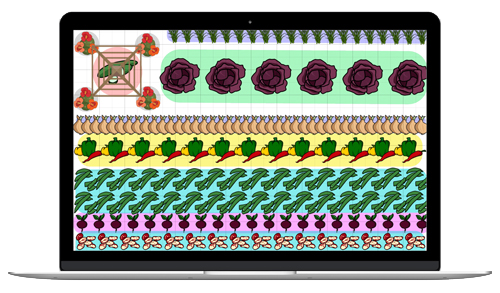
Feed Your Garden With This Organic Liquid Fertilizer Tea—for Free!
The Almanac Garden Planner - Use It Free for 7 Days!
Plan your 2025 garden with our award-winning Garden Planner.
ADVERTISEMENT
Hi Robin, once you have brewed a batch and strained it, does it need to be used immediately or can it be kept for a while?
.... our grass is fertilized and given weed killer by the lawn care company. I am taking a wild guess I don't want to use that on my veggie garden then?
Probably not a good outcome if you use grass clippings contaminated with weed killer.
Hi, I like this idea of a natural fertilizer, can I use this on my lawn to help the grass?
Thanks
A very interesting and informative. A good read!
RE to:
"Moldy Tea
Submitted by Robert W Bucey on June 28, 2018 - 6:06pm
Throw it out! If the tea isn't aerated properly nasty bacteria will start growing in it and create methane. It's best to stir it a couple times a day."
--------------------------------------------------------------------------------------------------
Please define "nasty bacteria".
Then, know that many bacteria, such as Lactobacillus, often used in pickling & cheese making (for one example) are anaerobic (those that often create methane).
And that many earthworms feed on many of those "nasty bacteria", destroying them, and leaving behind more beneficial bacteria (hence the reason the USDA-NOP exempts vermicast/"cold-composting" from the requirements of heat processing).
See my other reply.
Consider the beneficial role of other "nasty bacteria", like E coli, which are used commercially, but also in Nature to create natural antibiotics, natural flavonoids, even natural enzymes (such as Asparaginase, which has continually been recognized and demonstrated as one of the most effective killers of certain cancer cells).
Bokashi works on the principle of anaerobic digestion/decomposition.
The resultant product of that anaerobic decomposition makes a great feed for other aerobic bacteria, fungi (molds), and earthworms.
People need to be weary of absolute designations, such as "beneficial" "good", and "nasty", "harmful", "bad" and such.
Nature is way more complex.
That being said, aeration is a good idea (as it promotes the growth & development of aerobic bacteria, and aids in the nutrient leaching process).
But it's not an overly-simplistic "either/or" scenario.
"Ignorance more frequently begets confidence than does knowledge"
-Charles Darwin-
RE to: Moldy tea
Submitted by Joe on June 18, 2018 - 1:49pm
I tried this and got distracted from sitting it daily and it developed a white mold on top. Is it still good? Should I put it in the compost, or dispose of it and try again?
----------------------------------------------------------------------------------------------------------------------
Earthworms largely eat molds, bacteria, fungi, etc.
There's nothing wrong with molds, as long as you have the earthworms to consume that/those mold.
Plus, molds and fungi are the second line of natural decomposition (after enzymes) of organic matter.
The beneficial bacteria in the earthworm gut has been shown to destroy all bacteria, fungi and molds that are pathogenic to humans.
And leave behind more beneficial bacteria in their castings (worm manure), which work to aid sustained soil & plant health.
Molds, bacteria, fungi, etc are the sources of many natural vitamins, natural antibiotics (consider the origins of the discovery of Penicillin), natural antifungals, and other beneficial natural constituents.
.
They often work in conjunction with enzymes to create all the naturally good stuff that creates healthier plants, and produce.
Beware of bad info from others.
Even feared bacteria & fungi, like E coli and Aspergillis Niger (black mold) are shown to produce beneficial natural antibiotics, antifungals, beneficial enzymes, even flavonoids (which create "flavor" and "taste").
You need to establish a natural balance.













